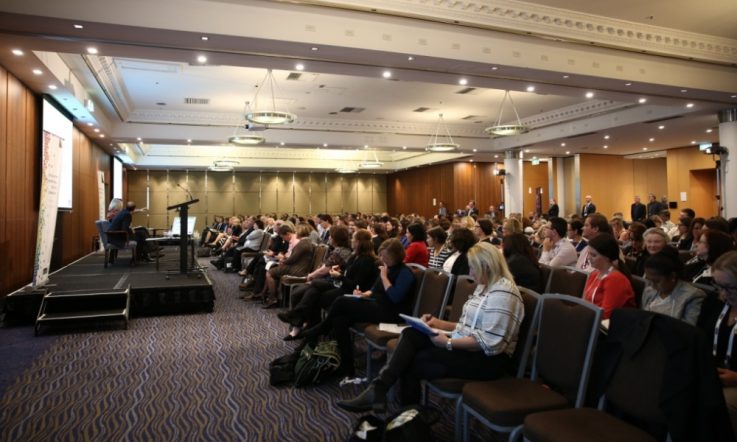If you're looking to carry out school-based improvement research, what makes a good question? What will the project involve and what information will you collect? And, further down the track, how can you share your findings with the wider education community?
This year's Excellence in Professional Practice Conference (EPPC) included an advice session on planning, conducting and reporting on improvement projects.
The panel featured Victoria University Professor Marie Brennan, Linda Fox of the South Australian Department for Education, and Teacher Editor Jo Earp, and was chaired by ACER Institute Director Elizabeth Hartnell-Young.
Here are some of their tips.
Where to start?
Marie Brennan: 'What is your curriculum for school improvement – that's where you start from. Just as we would help students break down their tasks it's also really important to break down our tasks when we're actually investigating ... keeping data ... and then working on reflecting on that, whether it's just you solo or working with somebody else, whether it's a school or whole cluster of schools.'
Coming up with a research question
Elizabeth Hartnell-Young says your research question needs to be clear. Key points to think about are: What does the researcher want to know? How would that benefit the learning of children?
Marie Brennan: ‘A good [research] question provokes action and thinking. It usually arises out of your first cycle of action and reflection.
'One of the things that I think is important is to locate your question in traditions of both practice and theory. As we read we enter into a tradition of other people who've been doing practice on things, and as we write, we write ourselves into that community too. I want [to see] questions that are located in, yes, that tradition of practice, but the newer ways of thinking about it.'
Collecting information
Marie Brennan says you'll end up collecting more data than you'll ever use.
'… The difference between existing data and then purposeful use of data and purposeful generation of data – I think we've got to get the balance right on that, and you won't necessarily know when you start what that balance will be, just like your question can change.'
Linda Fox was one of the presenters at EPPC 2015, who shared her work from the Task Predicts Performance project aimed at improving student reading levels.
'[In the planning phase], you need to think about: What data am I going to use to help me answer that question? This was a big focus for me. I thought about my baseline data … I wanted to compare where we were at the beginning of the journey with towards the end, and where that journey can go. Also … the data that you do choose, do you actually understand what it is, why it is and how you can effectively use [it]?
‘Probably the biggest thing was the documenting as you go (taking lots of photos, making sure you don't miss those opportunities). If I had my time again I would probably do a lot more reflection throughout the journey, and definitely documenting that as I go.'
Sharing your work with the community
ACER's EPPC and Teacher online publication are two of the ways you can share your findings throughout the year and contribute to an ongoing community of practice.
EPPC is an annual conference presented by practitioners, for practitioners. Teachers, school leaders and researchers are invited to submit proposals to present on a particular theme. The theme for EPPC 2016 is Collaboration for school improvement.
Presenters are also invited to submit their work to be published throughout the year in Teacher - either by writing and article or through an interview with the editorial team.
Jo Earp: ‘In terms of a general framework to help you structure your article, it's really the same things that you would be thinking about for EPPC presentations.
'What was the issue? What was the catalyst, and what was the evidence for that? Secondly, what did you do? What kind of program did you set up and how did it work? The third point, what was the impact? And, how do you know? Then, the last thing, what are the next steps? What's the idea that you're going to take forward? What's the future action? What might you feed back into the community?
'I'd also say think about three simple things. Openness: You've got to be willing to share your work with the rest of the community. Honesty: People will sometimes submit something to Teacher that they think we want to hear, but really what we want to hear is what's happened. Share the success, but also let's not be afraid to talk about the challenges because through doing that we can learn from each other.
'The third thing is context. Write what you know about, share what you've done. Don't overgeneralise (that this particular project has an answer that will work for every single teacher in Australia or across the world), just talk about your own context because that can be really powerful.'
Teacher welcomes contributions from educators, whatever their role, school sector or location. Contributions can be submitted in text, video or audio formats. Visit our How to Get Involved information page to download a quick guide to reader submissions.
EPPC 2016 will be held in Melbourne on 19-20 May and the theme is Collaboration for school improvement. Call for submissions opens 1 August, 2015. For more information visit http://www.acer.edu.au/eppc or email eppc@acer.edu.au



